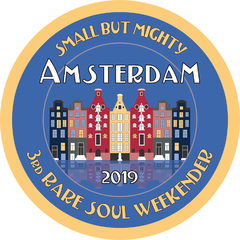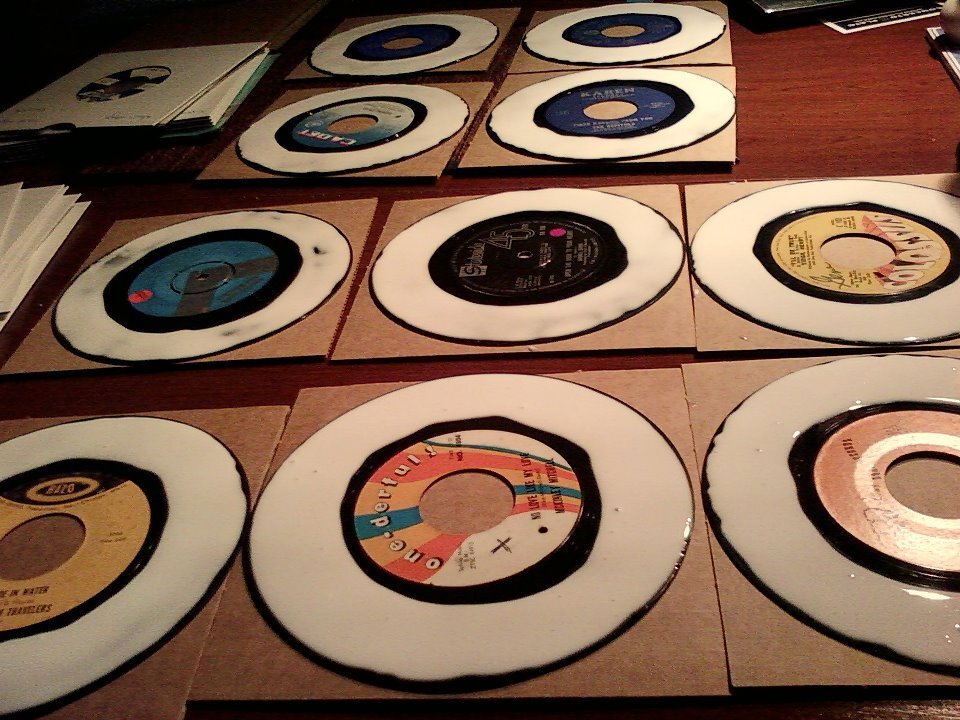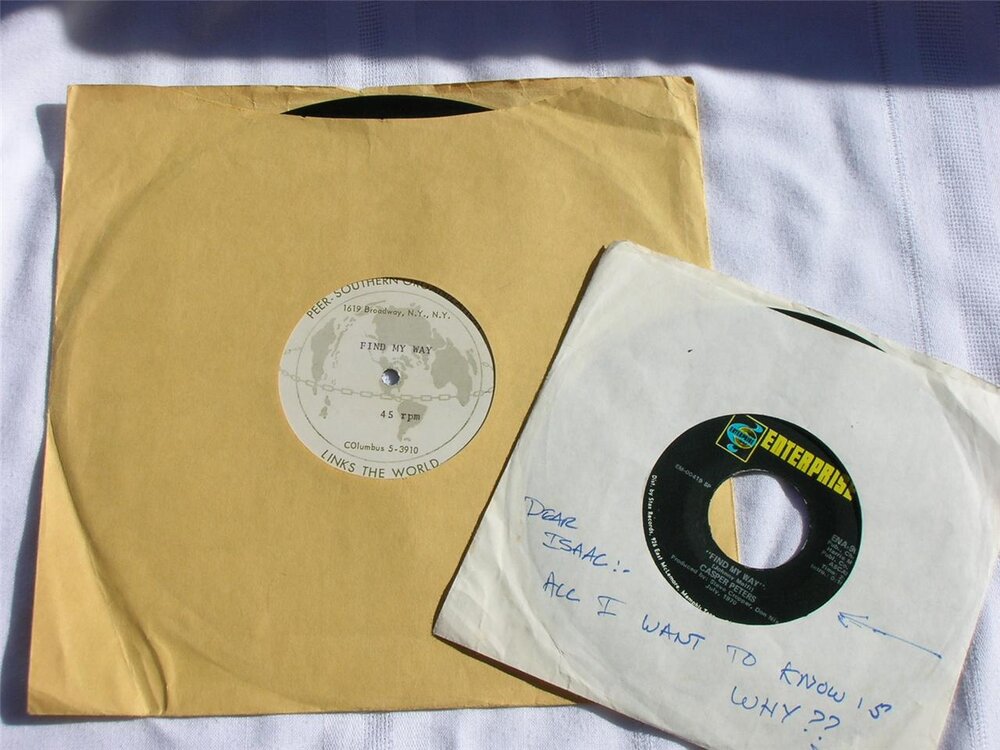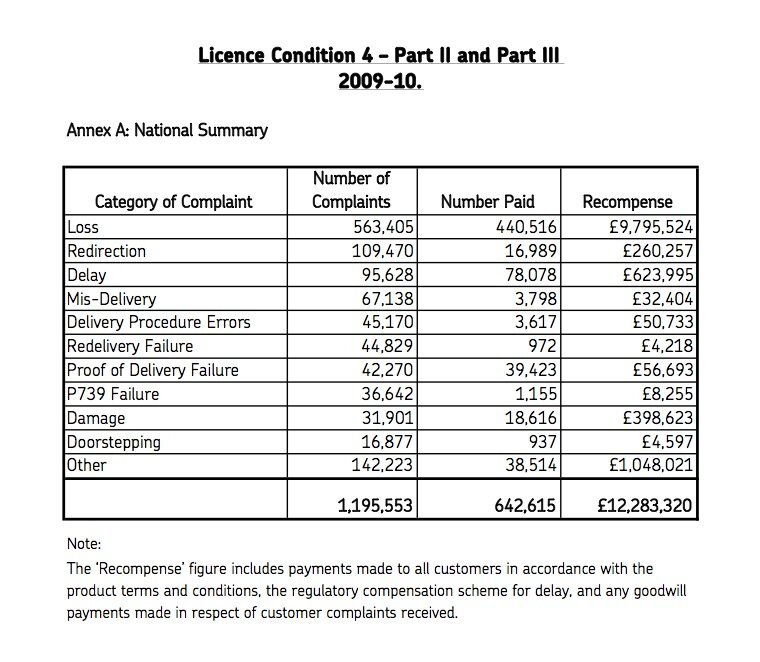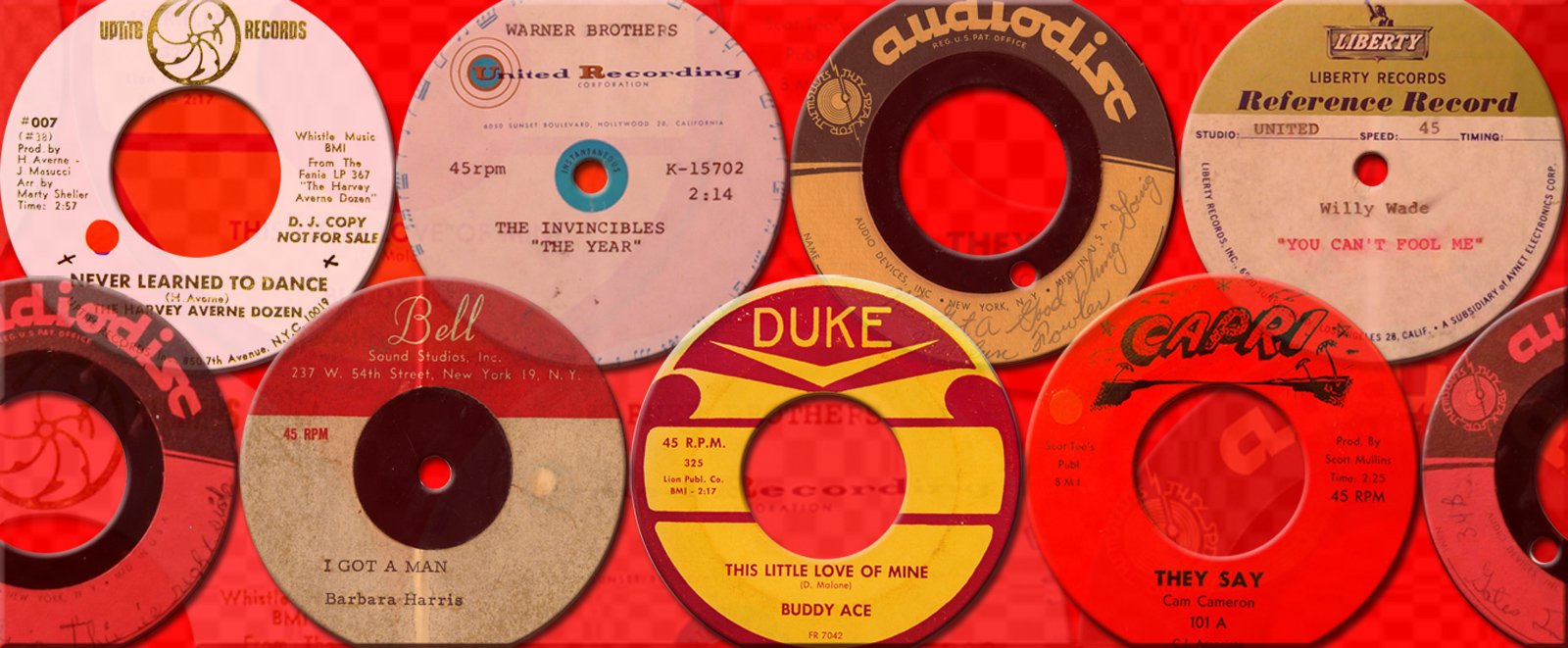
Everything posted by Amsterdam Russ
-
Unlimited Four-Walk Away Lover-Chanson
I wanna be happy - covered up as Howard Collins many years ago, I believe.
-
Did Anyone Attend This Gig In Manchester 1963
Specifically, it's "The American Folk Blues Festival - The British Tours 1963-1966".
-
Cleaning With Glue Pt. 2
I use a chopstick.
-
Cleaning With Glue Pt. 2
It works on styrene equally well...
-
Cleaning With Glue Pt. 2
The record on the green paper doesn't have enough glue on it. What you need is a consistent white covering. The record on the orange paper is much better, but still you have patches that need more glue. Here's the photo I uploaded in the other thread. You'll see that the application of glue is consistent across the playing surface. Note that the British UA 45 on the left does not have enough glue on it. And, after taking this picture, I applied more. Note that all these were done by hand - no turntable needed!
-
Cleaning With Glue Pt. 2
Bob, like you, I had problems with spill-over the first couple of times I tried the glue treatment. However, it is easily avoided. I used an old credit card (cut in half lengthways) to spread the glue evenly over the surface and work from the inside out. I try to work the glue to as close to the edge as possible, but don't attempt to get it perfect. There's no need to. Having said that, if you do use a plastic card to drag the glue a tiny amount past the edge, you should notice that its viscosity pulls it back and prevents it from dripping over. If glue dripping over the edge seems to be almost unavoidable, it may because you're using too much of the stuff, particularly around the outer edge. Another consideration is the temperature of the room in which you're storing and applying the glue. The glue will become slightly thinner/runnier in warm conditions. Ideally, you want to keep the glue stored somewhere cool and bring it out only when needed. This way it will keep its viscosity. When applying the glue, I have 45s resting on a piece of card, usually one of these you get when people pack records properly when mailing them to you. This is easy to rotate by hand, and is also a conveniently manageable size if you need to move the glue-covered discs somewhere safe to dry.
-
Cleaning With Glue Pt. 2
Not sure if you saw this thread or not...
-
Cleaning With Glue Pt. 2
Pva/craft and wood glue are one and the same thing.
-
"Lifting" And Copying Of Scans And Information For Personal Websites
In the UK, you must have a TV Licence to watch TV. When you have one in the UK, you are licensed to watch TV. In the USA, you must have a gun License to own a gun. When you have one in the USA, you are licensed to kill people.
-
Another Weird Ric Tic Variation
The font used for the group, title, etc appears to be Helvetica - a very hot typeface of the 1960s design world. I know - that doesn't help!
-
"Lifting" And Copying Of Scans And Information For Personal Websites
A creative work (and that includes a record label design) cannot be owned by someone and be in the public domain at the same time. However, in the commercial world (and let's keep it to records), copyright owners are happy to allow the distribution of their designs (record labels), because this aids in the promotion of them. And therein lies the rub. Scanning labels and using the images online to draw attention to the record company and its products is absolutely tolerated. However, you stick (for example) a scan of a Motown 45 or the logo on a t-shirt and, unless you have a merchandising licence from Motown, you'll be in trouble and the company will want to sue your proverbial ass off. Infringement of copyright will be one of the things you'll be charged with (along with illegal use of a trademark; producing, marketing and selling illegal merchandise, etc, etc). What defines how you can use something like a label scan is context. If it is being used in a way that benefits the copyright owner, then it is unlikely to create a problem. If an image is used in a way that benefits the user, but is to the detriment of the owner, then trouble is likely to follow. Usual disclaimer applies: I am not a lawyer, I'm not qualified at anything, if symptoms persist, please seek medical advice, blah, blah
-
"Lifting" And Copying Of Scans And Information For Personal Websites
There are significant differences between US and UK copyright laws. In the US, a scan or photo of an 'artwork' is not considered as a copyrightable work of art in its own right. In the UK however, a scan or photo of a work of art is protected by copyright. However, this protection only applies if the scan or image work is either a) modified so as to be considered a new work in its own right (therefore "a derivative"), or b) the work put into creating the scan or photo is of a high professional standard. A couple of years ago there was a major case whereby high quality photos of paintings (possibly from the collection of the UK's National Portrait Gallery) were used by Wikipedia. The images commissioned by the museum were extremely high resolution, full-sized photos and required much professional and technical expertise to create them. As such works can only be made by experts who must devote many hours to creating them, this effort is recognised by UK copyright laws. Basically, even though they are 'only' photos, they are treated in law as if they were creative works. As such, they have full copyright protection. The Americans don't see it this way and think that if you're just taking a photo, or using a scanner, then the technology produces the work, not the person - no creative effort goes into making them. It's because of this difference in perspectives that the legal case between US-based Wikipedia and the UK-based museum came about. What's the point of this? Well, certainly in the UK, scans, even of record labels, are copyright protected - but only if the person doing the scan also puts a good amount of effort into making them more than simply just a digital copy of the object. Put the scan into Photoshop and create a new design, one that features the label (for example) as a theme, and you may well have created an original work. As such, it is automatically copyright protected. When a work is created, you do not have to include a copyright statement (for example: © - Me, me, me: all rights reserved, 2012) when publishing them. Having said that, it is best to include a copyright statement as this makes it clear to potential infringers that the rights to the image are indeed assigned to an owner. Also, the first thing an image snatcher will say in their defence is "Oh, but you didn't say that it was copyright protected, so I assumed it wasn't!" Ignorance, of course, is no defence in law.
-
"Lifting" And Copying Of Scans And Information For Personal Websites
Out of interest, is there a statement about copyright and ownership of uploaded images in the site's T&C's?
-
Find My Way - Unreleased/unknown Version (Now Identified)
I agree that the penned message appears to convey "JM's" disappointment and frustration. If Melfi was merely demonstrating a song that he hoped Hayes might take on, then he succeeded, albeit with a different artist on vocals. No need to pen Hayes the terse note in that case, surely? After all, Melfi would receive the writer's credit no matter who sang it. As you say Paul, perhaps Melfi did demo the song with a view to Hayes recording it himself. Not only the spoken intro, but the slower tempo and the bassy feel of the backing arrangement would be very much in keeping with Isaac's style. Maybe it is Melfi singing. I expect it is - this would make sense. Whether it was with a view to Melfi's version, or a Hayes interpretation being released, we'll never know. Absolutely, a sound clip of Melfi's late 70s recordings, or any recording, would go a long way to identifying whether he is singing his own song on this disc. Anyone got, or can find a clip of Melfi singing??
-
Find My Way - Unreleased/unknown Version (Now Identified)
So, these are the version of the song we have... * The Tymes, Columbia, 1969 * Paul Anka, RCA (LP track), 1969 * Unidentified demo/acetate, 1970 * Casper Peters - Enterprise, 1970 * 3 Degrees - Roulette, 1972 * The Players - Chocolate City, 1975 * Cameo - Casablanca, 1977 * Duane Clark - Spark, 1978 * Johnny Melfi's Unison - Pyramid?, 1978 Any more info or additions..?
-
Find My Way - Unreleased/unknown Version (Now Identified)
There's a soundclip of the Duane Clark to be had on this page: https://www.cdandlp.com/item/2/0-220204-0-1-0/2946045933/duane-clark-find-my-way.html That disco sound is really not my cup of tea. Each to their own, of course. Would like to hear a clip if this if anyone has it, or can find it online...
-
Find My Way - Unreleased/unknown Version (Now Identified)
Here's what I know about this acetate... ¨ ¨With the acetate came a 45 of the Casper Peters' version on Enterprise. On the paper sleeve of this is a handwritten note that reads: ¨ ¨ Dear Isaac:- All I want to know is why?? ¨ ¨ The note is signed off with initials that look as if they read: JM. Reinforcing the question is an arrow pointing at the label of the Casper Peters' version. Pic attached... Steve Cropper and Don Nix produced the Casper Peters 45, and Stax distributed the record. It seems reasonable to think that perhaps the Isaac being addressed is Isaac Hayes. However, is there any connection to the man? Both discs came from the estate sale of an old lady who, in her day, had been an antiques dealer. Among the lots for sale were a number of boxes containing personal items once belonging to Isaac Hayes. It's thought that the antiques dealer might have bought these boxes at what I believe is called a lien sale. That, as I understand it, is when the tax authorities seize your assets and sells them off to the public, thus recouping some outstanding tax. It is thought that after buying the boxes as a job lot, the lady left them in storage for years, possibly, I'm told, since the early 80s. As has been pointed out, the writer of "Find my way" was Johnny Melfi. With the initials on the sleeve being "JM" could it be that Melfi scribbled the tersely written note to Hayes? Had Melfi cut a new arrangement of the song and sent it to Hayes in the hope he'd get it released through Stax? Certainly, Hayes had control over such things then. Perhaps Hayes decided that the new arrangement was good, but not good enough, and so got Steve Cropper and Nix do their thing on it and had Casper Peters record it. Unmistakably, there are many similarities between the arrangements of the two versions. If any of this is correct, it dates the acetate version - the possible demo cut - to before the Casper Peters cut, which was released in 1970. There's no documentation to substantiate this, only the story told to me and the facts that the acetate and the 45 were found together in the possessions that once belonged to Isaac Hayes, and the tantalizing coincidence that the initials just happen to be that of the songwriter...
-
Find My Way - Unreleased/unknown Version (Now Identified)
I think you're probably about on the button there. There happens to be bit of a back story which supports this, one involving Isaac Hayes. When I get a bit of time, hopefully later in the day, I'll explain the connection and what little information I know...
-
Find My Way - Unreleased/unknown Version (Now Identified)
Ah, I see where you're coming from...
-
Find My Way - Unreleased/unknown Version (Now Identified)
Thanks for the suggestions. Someone also suggested to me that it might be Lou Rawls, I expect because of the spoken intro more than anything else. But, as with OC Smith, it would need to be sung about an octave lower to be convincing - and the voice is just not rich enough for it to be either. That aside, it doesn't sound like Rawls or Smith. Vocals are nowhere near trademark warbly enough to be Johnny Mathis, surely? Paul Anka - would be interesting to hear a clip of his version, even though it's not him. This compilation? No mention of it on that. Somewhere else, perhaps?
-
Find My Way - Unreleased/unknown Version (Now Identified)
I've been asking around and so far no one has been able to identify the artist. Perhaps it might have been more sensible to put up a sample first, but here it is now. The acetate it comes from provides no details of the singer/group. https://soundcloud.com/harveysoulfinger/find-my-way-unknown-unreleased All help in identifying the singer appreciated...
-
Missing Records - Is This Just Bad Luck
A quick trawl online turned up this courtesy of someone's request through the Freedom of Information Act. Just to be clear, these figures relate to the UK's Royal Mail (so figures are in pounds Sterling). Mis-delivery... now if ever a term was conjured up out of a PR exec's hat..!
-
Find My Way - Unreleased/unknown Version (Now Identified)
I take it you didn't read the beginning of this thread
-
Find My Way - Unreleased/unknown Version (Now Identified)
No, the version I have definitely isn't any of those...
- Restoring "noisy" Vinyl

